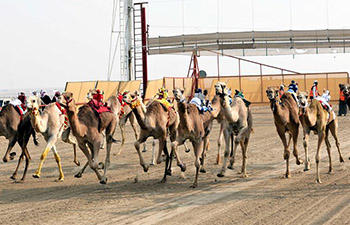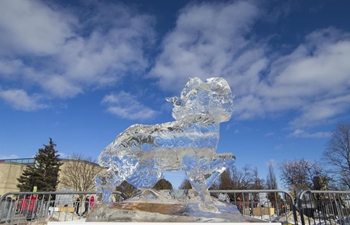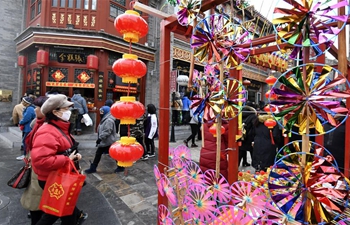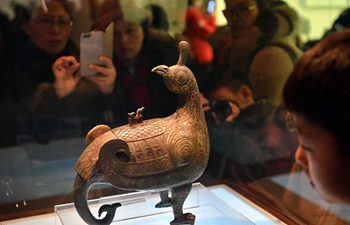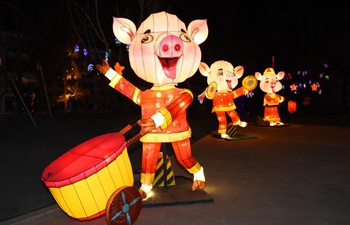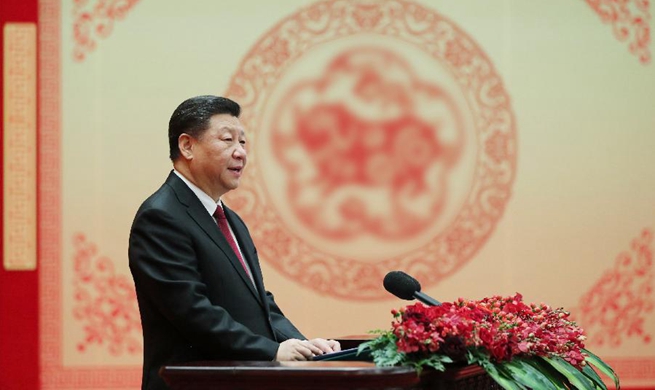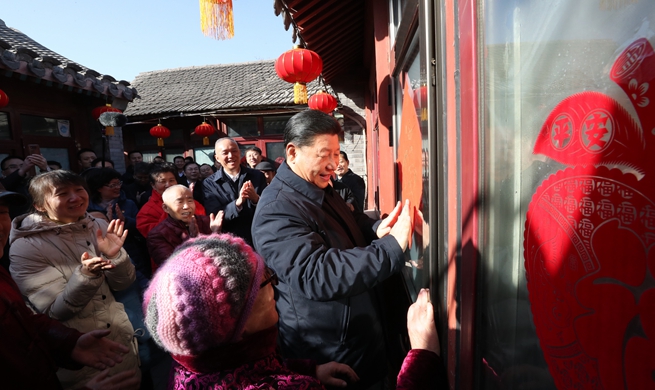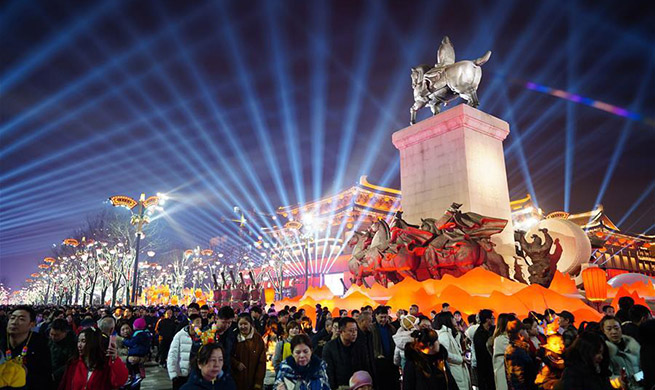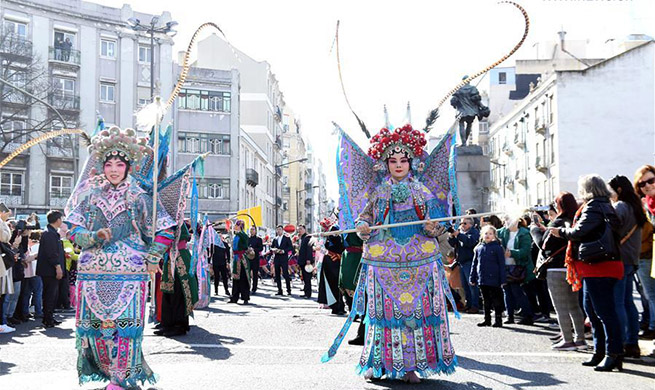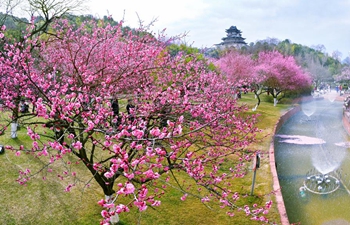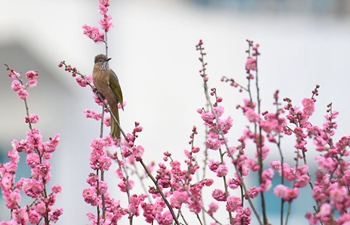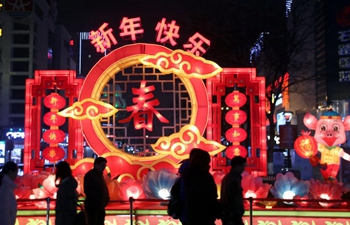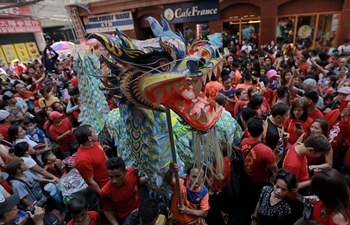BEIJING, Feb. 10 (Xinhua) -- At about 500 meters away from the gate of the Forbidden City in central Beijing, Zhang Lin saw the scrolling captions on a digital display: "All tickets to the Palace Museum during the Spring Festival holiday have been sold out."
"I didn't expect a museum ticket to be as popular as a train ticket back home during the Spring Festival," said Zhang, a college teacher from northeast China's Liaoning Province.
"It's a pity I hadn't book the tickets earlier. My family missed the chance to have a royal taste of the Spring Festival," he said.
Zhang is spending his first week-long Spring Festival holiday in the Chinese capital, together with his wife, father and mother-in-law and his four-year-old son.
The former palace, which allows 80,000 visitors per day, became more attractive this year in the otherwise freezing off-season because of an ongoing New Year exhibition, the museum's largest with 885 relics.
The exhibition aims to provide an immersive royal experience for visitors with the entire Forbidden City adorned with newly-restored ancient royal lanterns and spring couplets, including a rare collection of the Chinese character "Fu," meaning happiness and good luck, written by five Qing Dynasty emperors.
"Luckily, we've got a plan B," said Zhang, pointing to the adjacent National Museum of China (NMC).
The NMC is staging a series of exhibitions attracting a record of more than 300,000 visitors during the five days from Tuesday to Saturday.
Among them was an exhibition to commemorate the 40th anniversary of China's reform and opening-up, which was launched in November, and a display of the Bronze Tiger Ying, a looted Chinese bronze vessel recently brought home.
"'Spending the Spring Festival in museums' has evolved from a slogan for promotion to a common way for the public to mark this traditional holiday," said Shan Jixiang, curator of the Palace Museum.
Apart from those in the nation's capital, museums nationwide also witnessed a rising number of visitors.
People queued in long lines in front of the Shanghai Museum even before the gate was opened.
In central China, the Henan Museum received about 8,000 visits on Feb. 6, the second day of the Chinese New Year, two times the figure of a regular weekend day.
Many museums are staging exhibitions featuring pigs, the Chinese Zodiac animal of the new year.
A pig-shaped bronze vessel, which dates back to more than 3,000 years ago, is on display for the first time in the Shanghai Museum.
"There has been a marked increase in museum visitors during the Spring Festival since 2015," said Guan Jun, who has been a museum volunteer for six years.
Guan attributed the increase to both an improvement in curating innovation, promotion and service of the museums and stronger public recognition of good traditional Chinese culture.
China's 5,136 museums saw nearly one billion visits in 2018, figures from the National Cultural Heritage Administration show.
Shan Jixiang said he hopes more Chinese could put museum tours on their must-do Spring Festival list alongside the Lunar New Year Eve family reunion dinner, annual TV gala and watching films.




